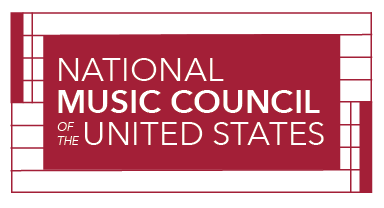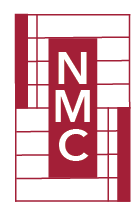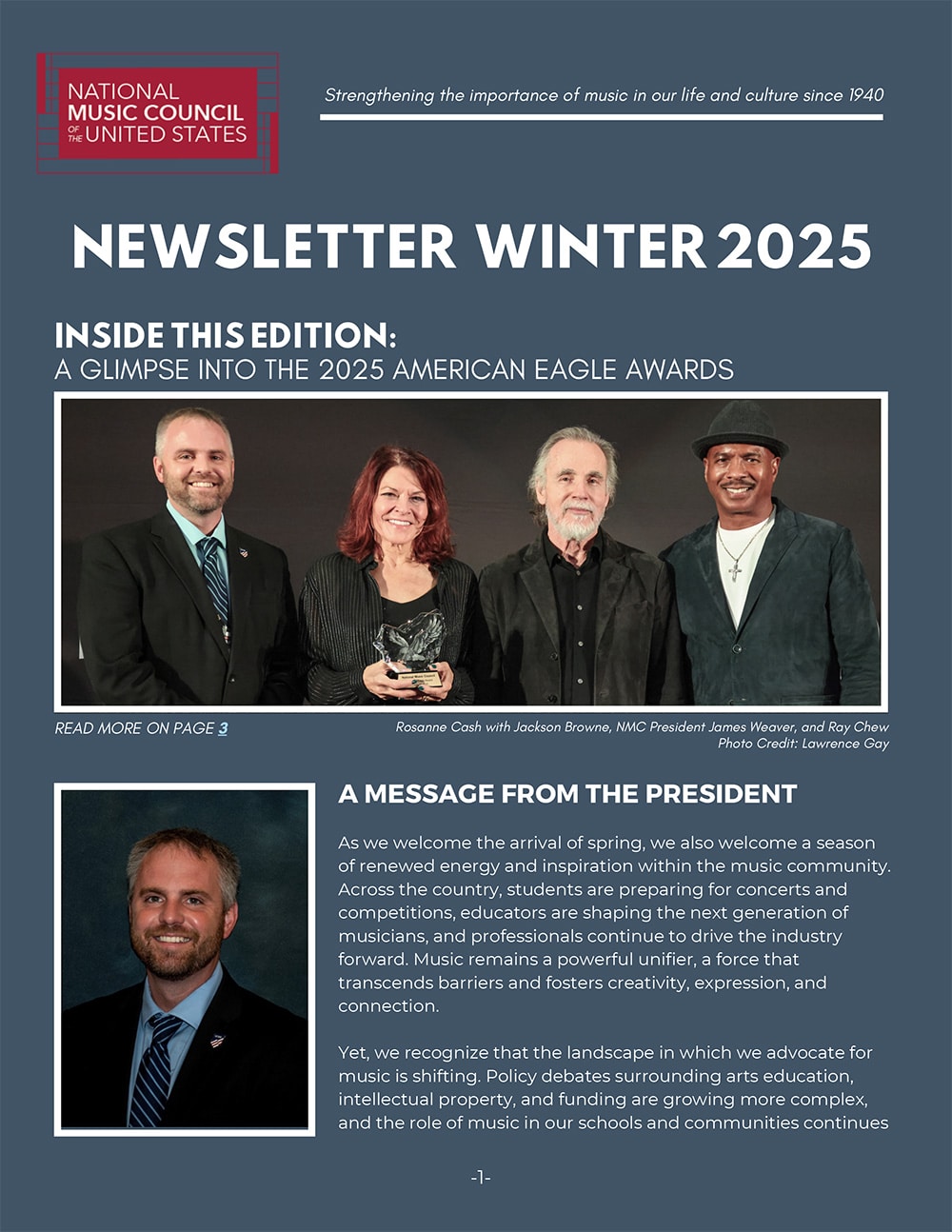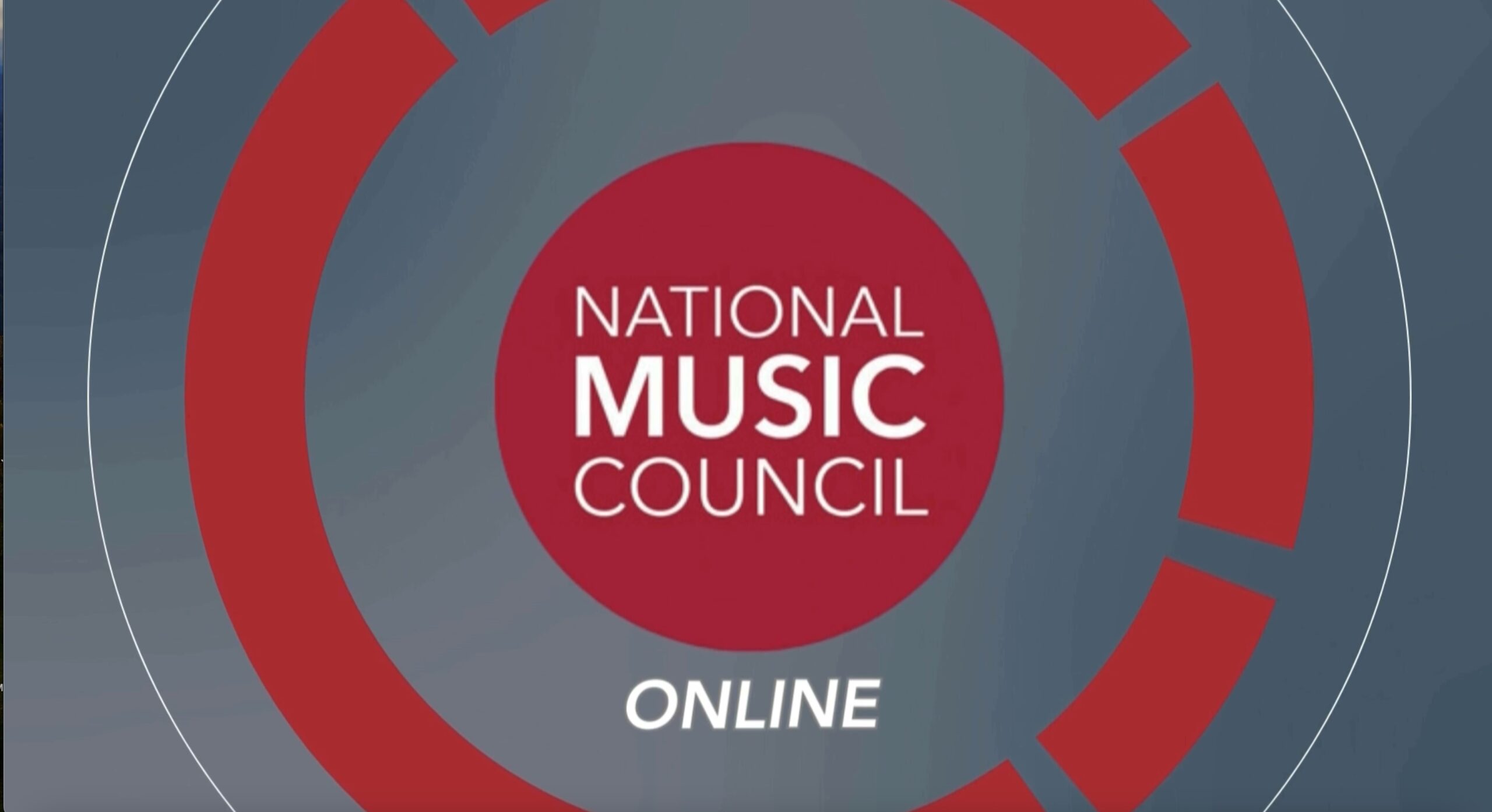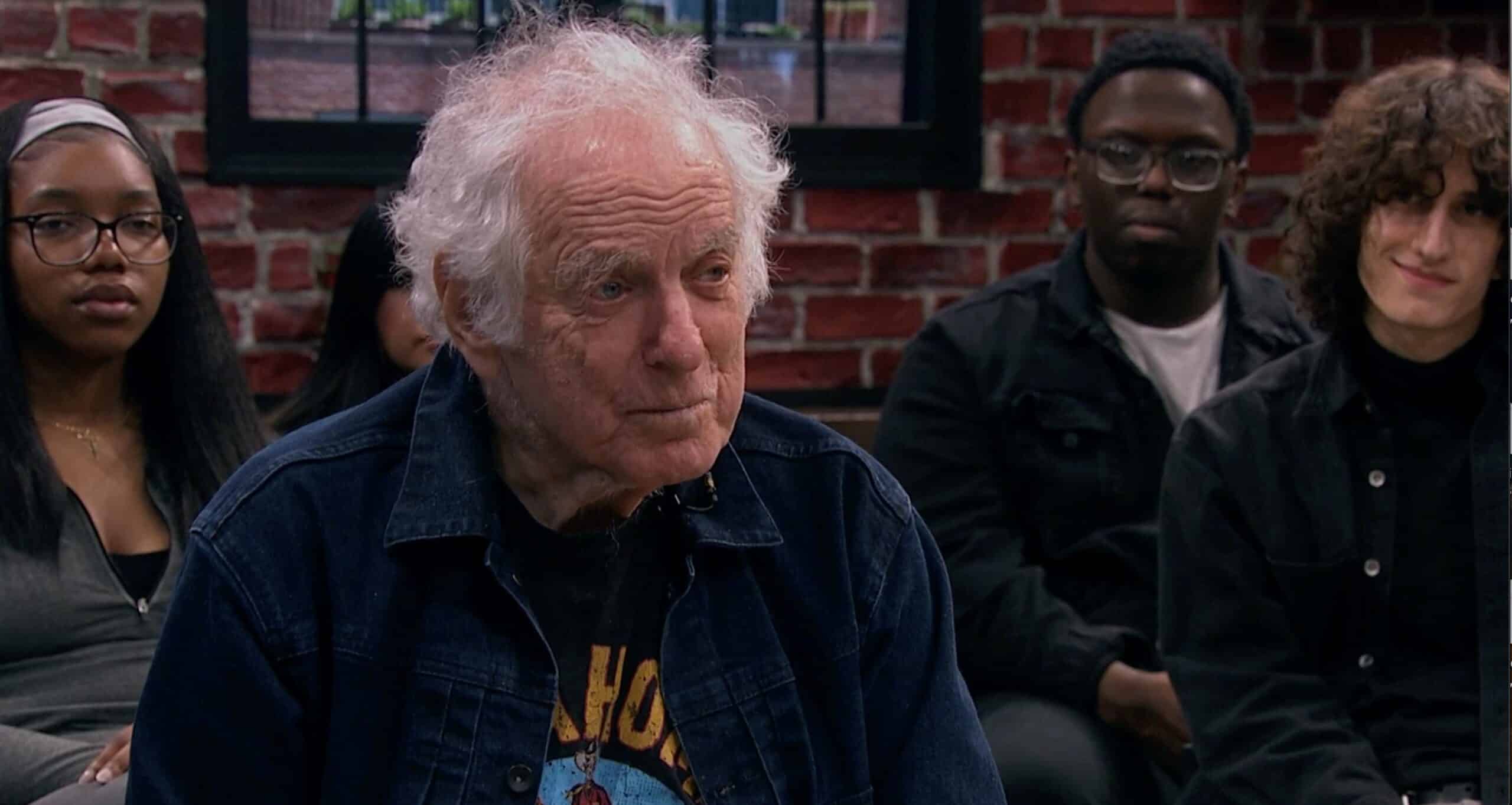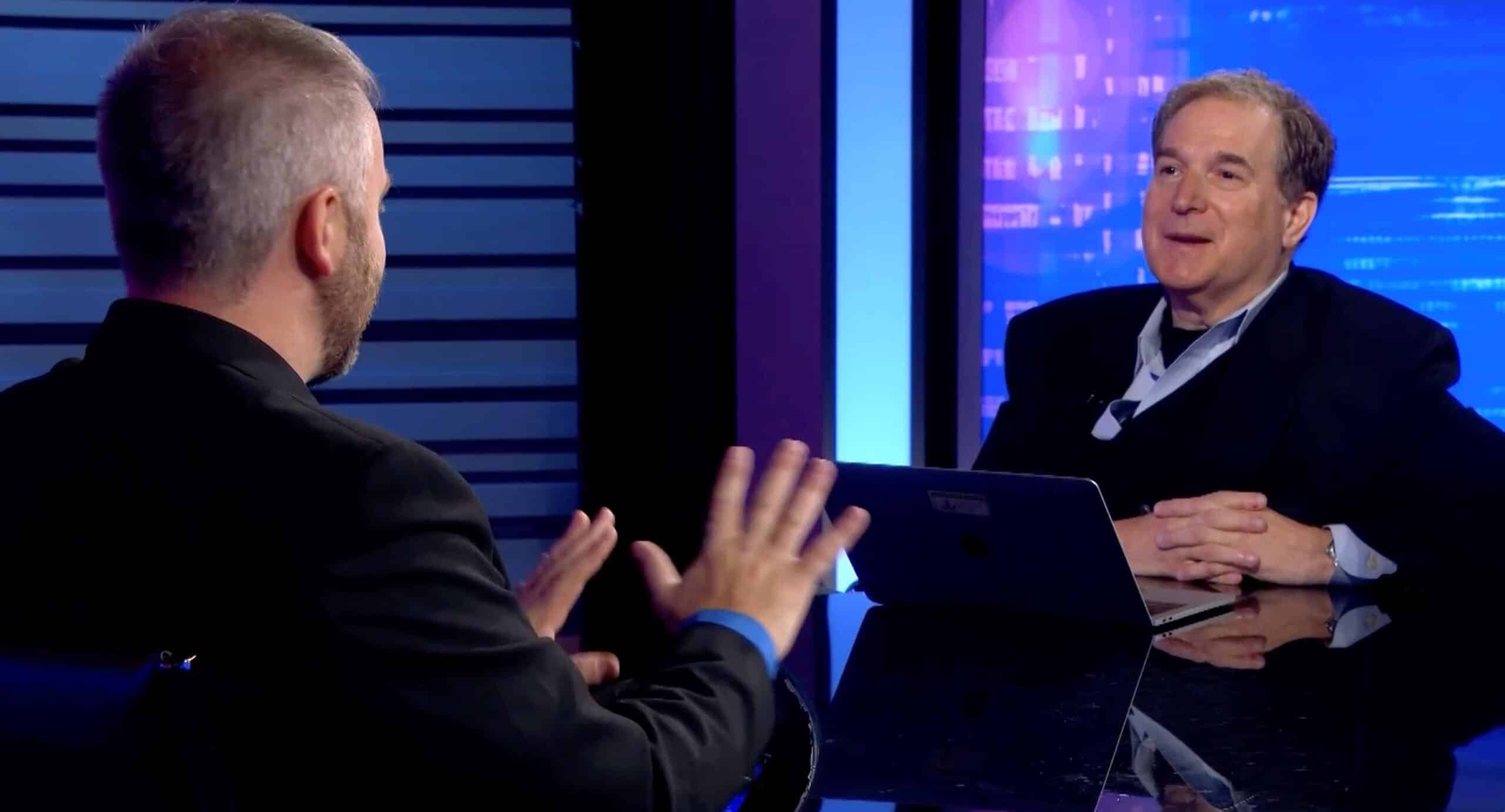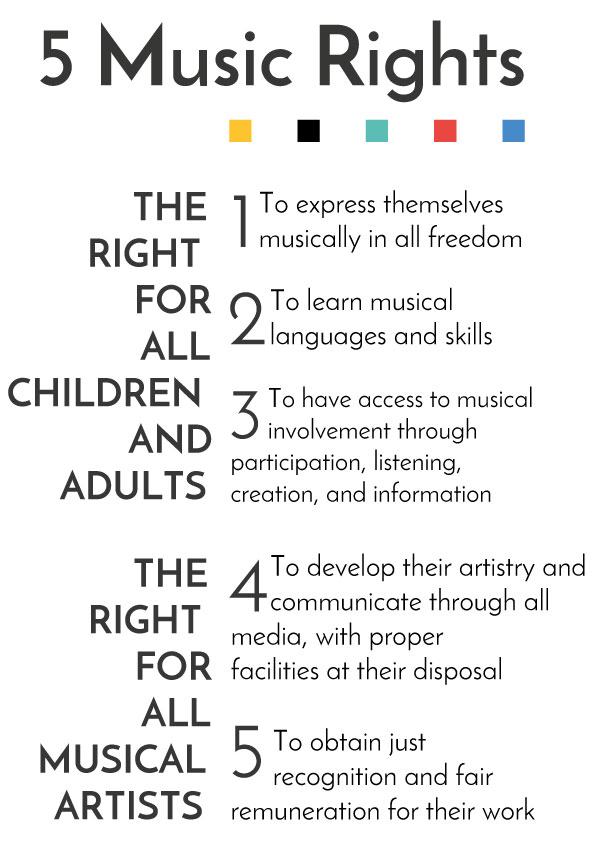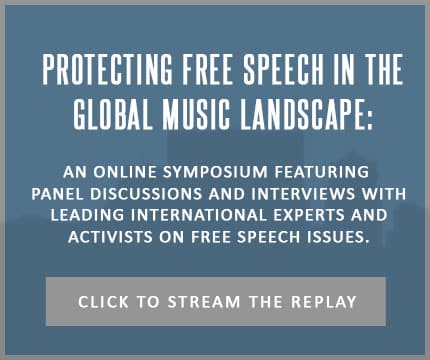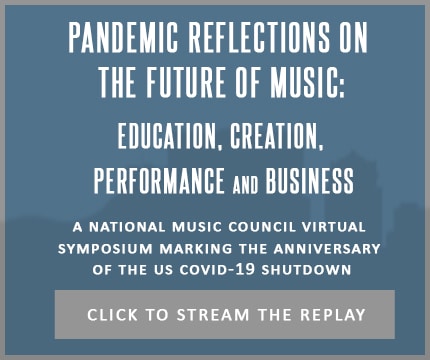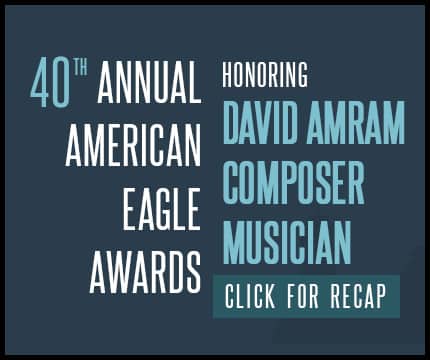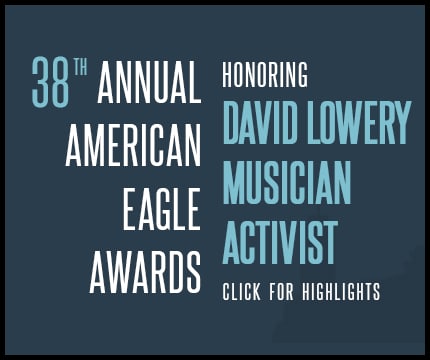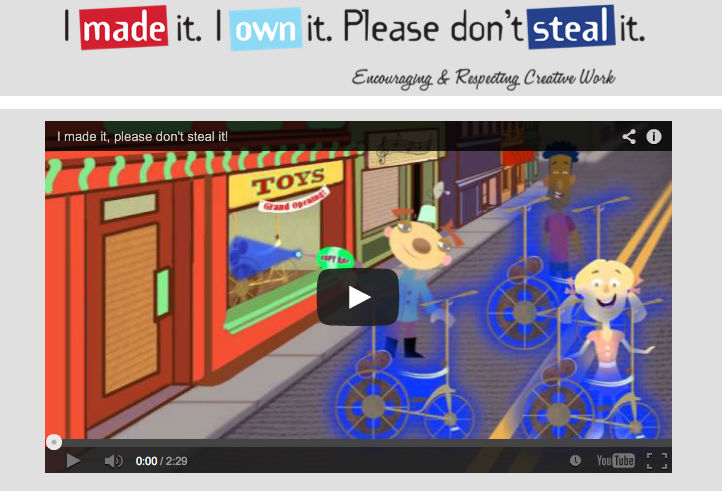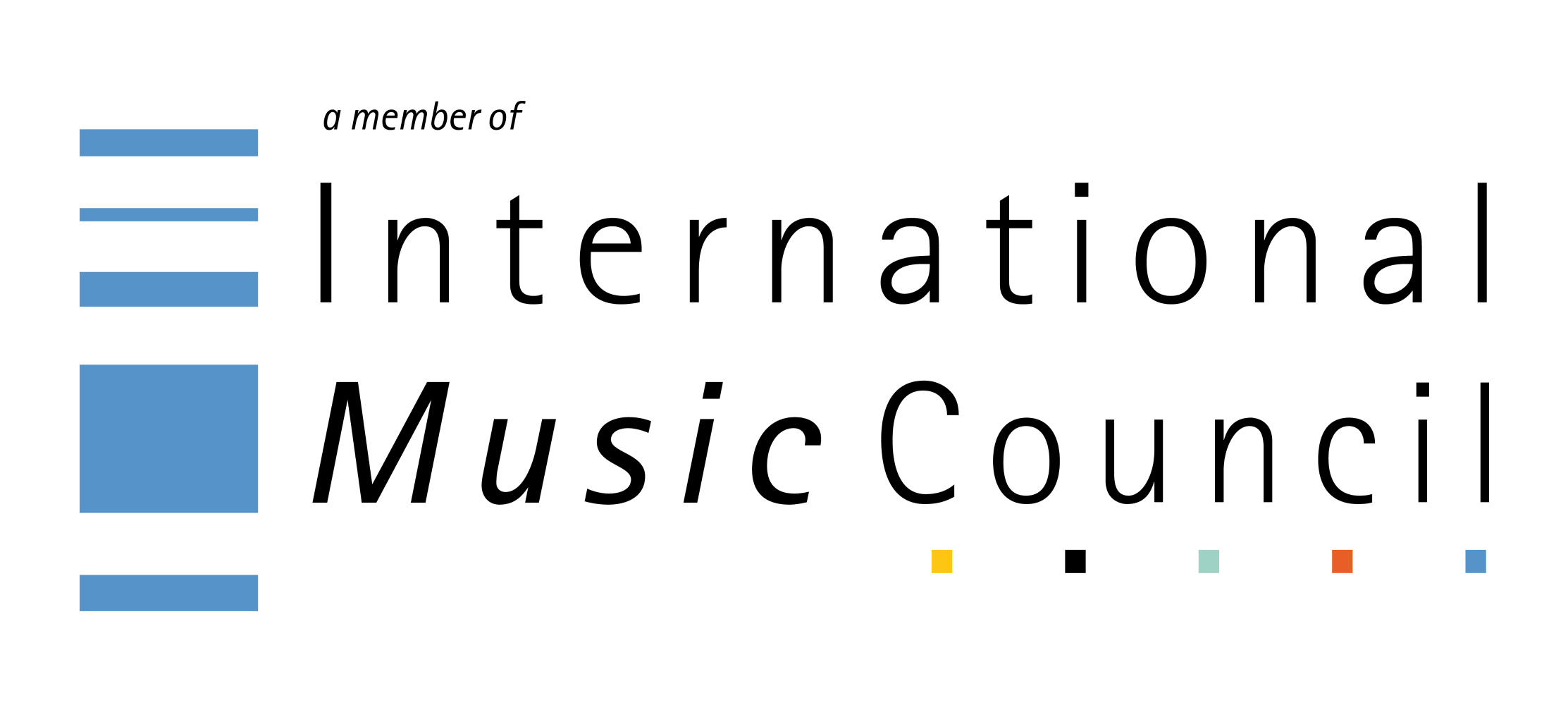National Music Council of the United States Presents Progressive Rock Icon, Creators’ Rights Activist and Music Educator David Lowery with the Prestigious American Eagle Award for 2022
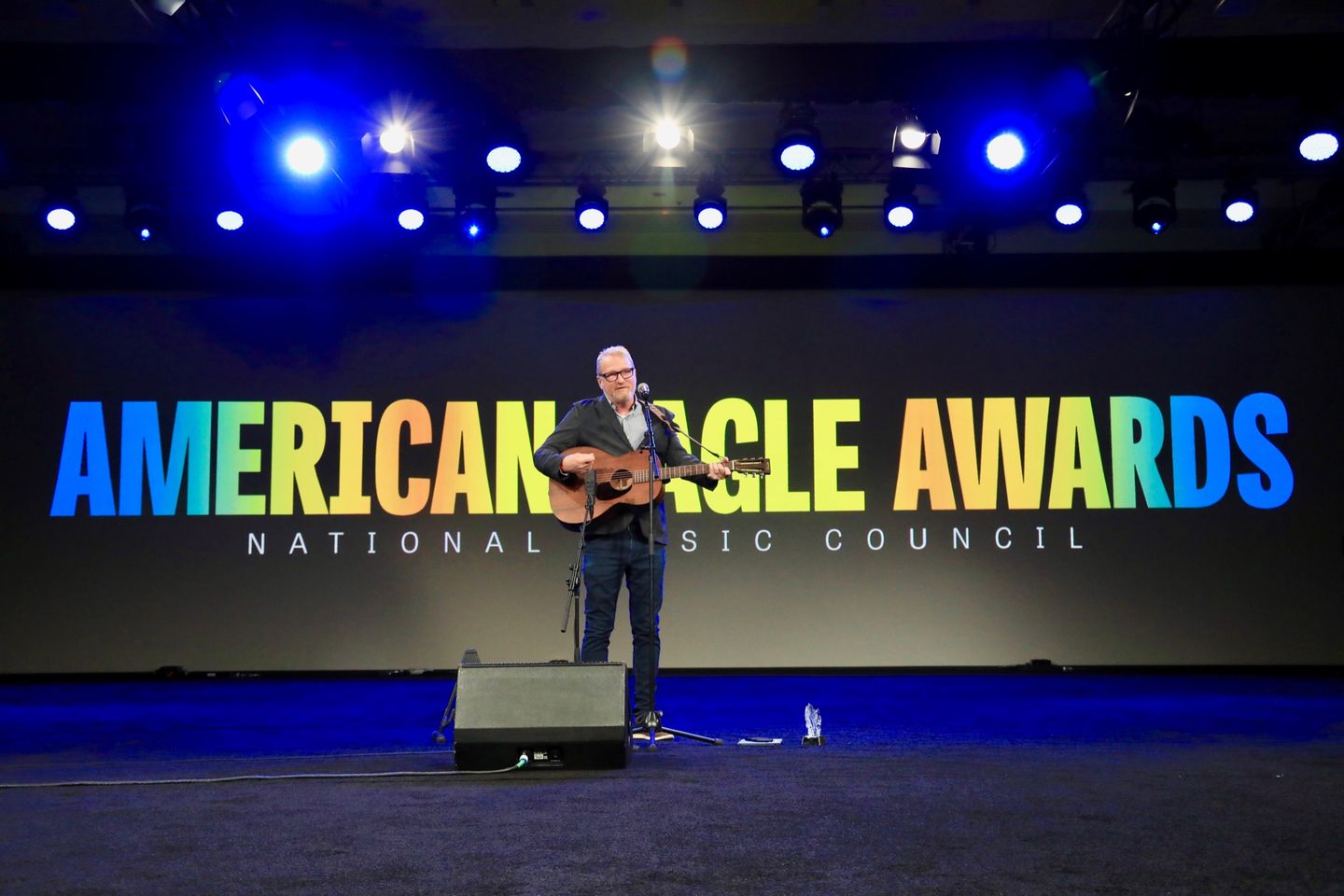
Los Angeles, California, June 8, 2022 – On June 2, the National Music Council of the United States presented progressive rock icon, creators’ rights activist and music educator David Lowery with its 2022 American Eagle Award. NMC is the Congressionally chartered umbrella organization representing virtually all of the most active music industry groups in America, and has bestowed the highly prestigious award just 38 times in its over eight decades of existence.
Mr. Lowery joined the highly exclusive list of music community luminaries to have previously been honored for their career-long histories of truly significant contributions to American musical culture, music education, and the protection and advancement of creators’ rights both in the United States and around the world. Past honorees have included Steven Sondheim, Dizzy Gillespie, Quincy Jones, Herbie Hancock, Benny Goodman, Lionel Hampton, Dave Brubeck, Marian Anderson, Max Roach, Lena Horne, Vince Guaraldi, Roberta Peters, Odetta, Patti Smith, Kris Kristofferson, Sesame Street, and VH1’s “Save the Music” Foundation.
The Award ceremony, which took place at a packed gala dinner at the NAMM Summer 2022 convention in Anaheim, featured remarks by NMC Chair Charles Sanders, Songwriters Guild of America President Rick Carnes and NMC President James Weaver, and a rousing speech and performance by Lowery himself. Focusing on the need to champion fair compensation for music creators and artists in the 21st century if musical culture is to continue to survive and grow, Lowery stated:
“The foundational myth of Silicon Valley is the garage startup that becomes a global brand. Well, look at my own startup: Camper Van Beethoven. A few kids in a faded beach town start a band. With a small personal loan from a singing cowboy-true story- we made a record and went from the attic to competing on a global scale in a few short years.
In the 80’s and 90s, this story was replicated, to different degrees, by hundreds of indie rock bands all across the United States. And this story is not unique to the US or rock music.…If Silicon Valley is widely hailed for its entrepreneurial energy and innovation shouldn’t artists and bands also be praised and seen in the same light? We are certainly as creative. We generate jobs and substantial economic activity. Some political scientists even think it was really American Pop Music that ended the cold war. It has always seemed like something worth protecting to me.”
Lowery concluded his remarks by performing his first, satirical hit, “Take the Skinheads Bowling,” which prompted a standing ovation from the appreciative audience of industry professionals and fellow creators. “Keep fighting for your rights,” he told the crowd. “You are truly on the right side of history.”
David Lowery’s storied career began while studying mathematics and computer science at the University of California Santa Cruz in the early 1980’s. It was there that he founded the critically acclaimed ensemble Camper Van Beethoven, and the associated record label Pitch-a-Tent Records. With these two initiatives, Lowery played a prominent role in launching the global Indie Rock movement. In 1991, he moved on to the ensemble Cracker, which produced three top ten alternative/rock radio tracks and three platinum albums. During that period, he also produced a variety of recording artists, including albums for critically acclaimed and commercially successful bands such as The Counting Crows, LP and Sparklehorse.
Today, Lowery continues to be an active songwriter, recording artist, university professor, author and entrepreneur. He likewise remains dedicated not only to tirelessly fighting for music rights (he organized the class action lawsuit for copyright infringement against Spotify nearly a decade ago), but also to demonstrating to creators that entrepreneurial alternatives to Silicon Valley-based music distribution of music are available to counter the current, grossly unfair payment practices of the tech giants.
